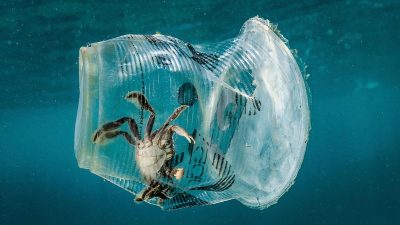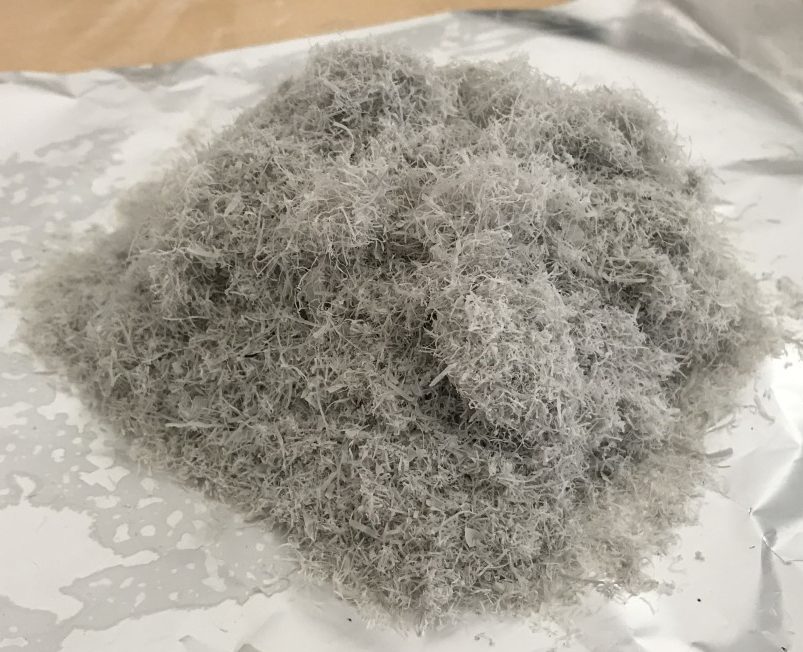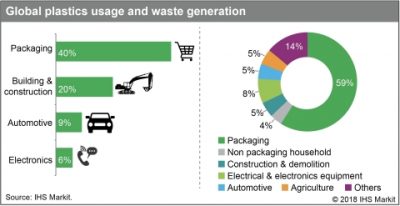
In the last few decades, Canadians have become more conscious and informed about Climate Change and the deterioration of the environment centralized around the use of fossil fuels and petroleum products, more commonly known as plastics. The dramatic growth and advancement of human development have exponentially increased the applications of plastics. This has resulted in approximately 8 million tonnes of plastic waste entering the oceans every year![1] Noel Guevara / Greenpeace via EPA’s image depicts the damage of plastic in the ocean. Plastic waste has been detected in almost all living organisms on earth and will likely become a part of our biology without dramatic shifts in our habits. Progress to date in the efforts to recycle have only yielded an 11% recycling rate of plastics in Canada.[1] With consumption steadily rising, this problem will only worsen without an aggressive response.

The reality of the devastating effects of plastics in landfills and oceans to the ecosystem has been amplified with China’s new National Sword policy banning plastic waste import as their new measure for the Protection of the Environment and People’s Health, implemented in January of last year.[3] In the past, many western countries have depended on China to take our plastic waste with up to 45% of the world’s recycled plastics entering their facilities.[2] This new policy will result in over 100 million metric tonnes being displaced over the next decade.[2] Other countries, like Malaysia, have attempted to take up the plastic waste that China has refused, but they lack the infrastructure for the enormous demand that China was servicing.[2] This giant global shift has made the Government of Canada accelerate its efforts to achieve its own zero plastic waste goals. The Government of Canada, through the Canadian Council of Ministers of the Environment (CCME) and the Environment and Climate Change Canada (ECCC), has allocated 10 million dollars for seven challenges to 18 Canadian companies with new proposals to address this problem, thus far.[3] One such project is the Plastics Challenge in the construction industry. This challenge mandates the participants find “…innovative solutions needed to increase the recovery, reuse and recycle of plastic wastes generated from construction activities.” [4] MgO Systems is one of the companies leading the effort to tackle this urgent problem.

The construction industry alone contributes 30% of all plastic waste in Canada and 20% globally.[4] The Plastics Challenge is a way to support innovative companies such as MgO Systems in keeping plastic construction waste, including hard-to-recycle plastics such as fire-retardant PVC, out of landfills. Our goal of encapsulating unsorted and hard-to-recycle plastics in Aerated Insulating Magnesium oxide (AIM) foam (patent pending) will allow for local construction companies to have a streamline for their plastic waste and divert it from landfills. At MgO Systems, we are proud to be a technology company that cares about the future of our planet and will continue to invest in smart, innovative products and technologies that will be environmentally conscious. We will strive to extend our vision of FASTER. STRONGER. SAFER to include our global mandate to REDUCE. REUSE. AND RECYCLE.
[1] Climate Change Canada. (2019, July 18). Government of Canada. Retrieved August 13, 2019.
[2] Watson, S. K. (2018, June 28). China Has Refused to Recycle the West’s Plastics. What Now? Retrieved August 13, 2019.
[4] Government of Canada taking action to reduce plastic pollution. (n.d.). Retrieved August 13, 2019.
[5] Branch, C. A. (2018, October 18). Plastics Challenge – Construction Waste. Retrieved August 13, 2019.











